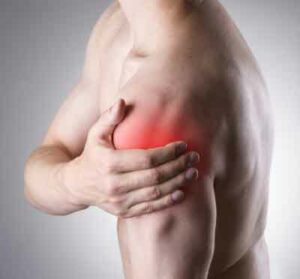 Your shoulders are among the body’s most flexible joints. They allow you to brush your hair, reach for things, pull your kid’s wagon, and drive to work. Acute shoulder pain can make these simple tasks seem momentous.
Your shoulders are among the body’s most flexible joints. They allow you to brush your hair, reach for things, pull your kid’s wagon, and drive to work. Acute shoulder pain can make these simple tasks seem momentous.
Causes of Shoulder Pain
The shoulder has a complex anatomical structure that includes tendons, muscles, ligaments, bones, and nerves. Any of these parts may be responsible for your pain.
For example, rotator cuff tendons become inflamed when they get trapped in the bony area of your shoulder blade. Your rotator cuff consists of tendons and muscles that connect the upper arm bone to the shoulder blade.
Tiny tears in the rotator cuff can be caused by injury, repetitive motion, aging, and more. Some indicators that you might have such an issue include weakness and popping sounds when you move your arm and pain that interferes with your ability sleep.
Osteoarthritis is another common cause of shoulder pain. This occurs when the cartilage that covers the shoulder joint wears out over time. The cartilage is the smooth, flexible tissue that enhances the movement of the shoulder joint. Osteoarthritis can result from injuries, inflammation of the joint lining,
and chronic wear and tear.
Other causes of shoulder pain include:
- Frozen shoulder
- Calcific tendonitis
- Bursitis
- Dislocation
- Broken bones
- Tendon rupture
- Impingement
- Sprains
- Bone spurs
Diagnosis of Shoulder Pain
As demonstrated above, there are numerous causes of shoulder pain. Your physician will first perform physical elimination to identify the possible causes of your discomfort. This may include pressing on different parts of your shoulder to check for tenderness and abnormality and test your range of motion.You might also require imaging tests like ultrasounds, X-Rays, and MRIs. Imaging tests display any damage in the shoulder’s cartilage, ligaments, bones, and tendons.
Treatment
The cause and severity of the shoulder pain will inform your treatment options. For some people, the pain responds to at-home interventions like rest, ice, heat, and over-the-counter or prescription nonsteroidal anti-inflammatory medications (NSAIDs).
Your physician may also recommend prolotherapy, physical therapy, or cortisone injections. If none of these suffice, surgery may be the only remaining option.
Prolotherapy for Shoulder Pain
Prolotherapy, also called regenerative injection therapy, is a way of injecting an irritant solution into a tendon or ligament in order to cause a reparative inflammatory reaction to help repair the tendon and relieve pain. Prolotherapy addresses the root cause of shoulder pain caused by rotator cuff tears, AC separation, arthritis, and shoulder instability. In addition to reduced pain, you can look forward to an increased range of motion and enhanced strength.
